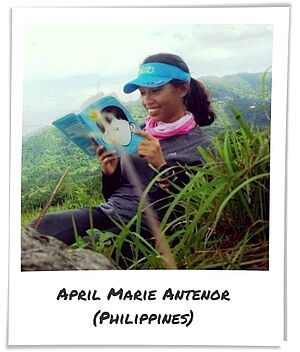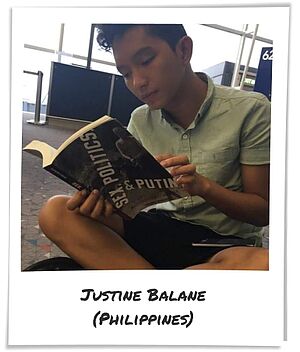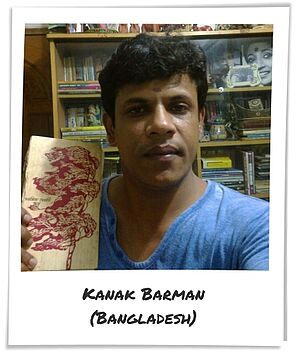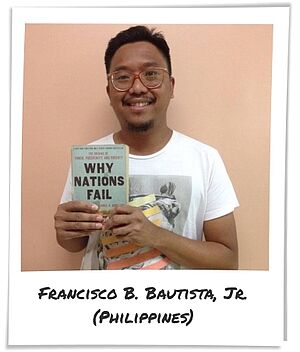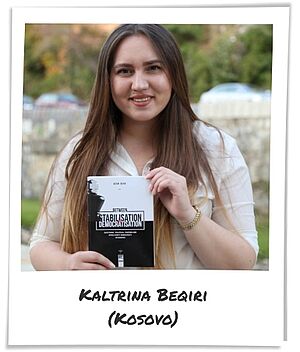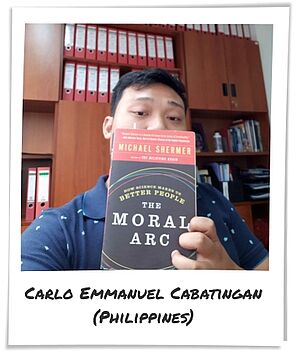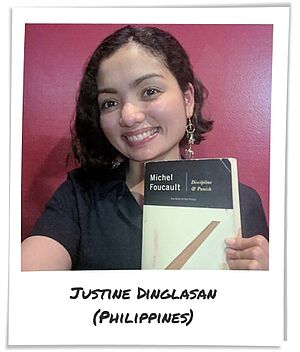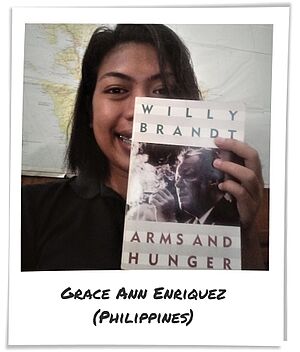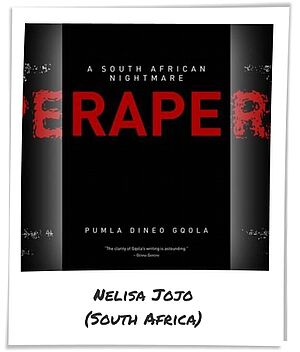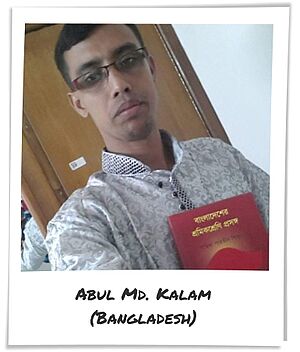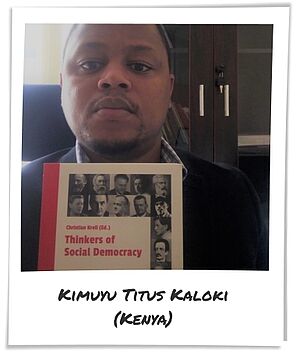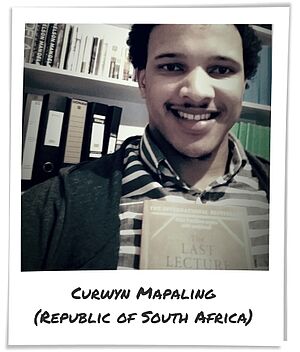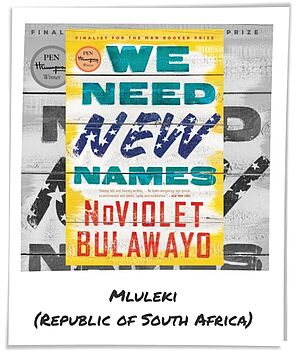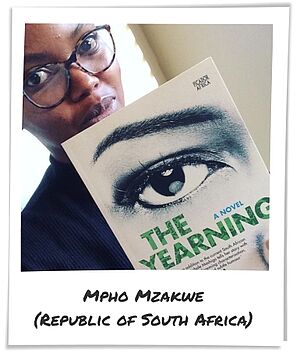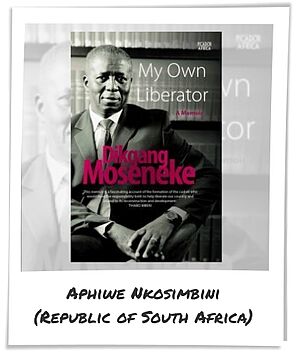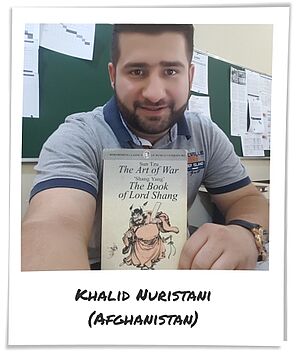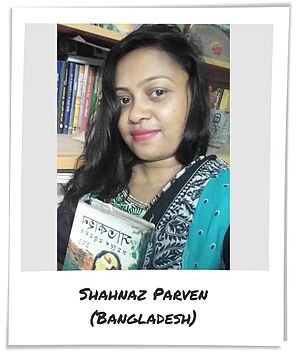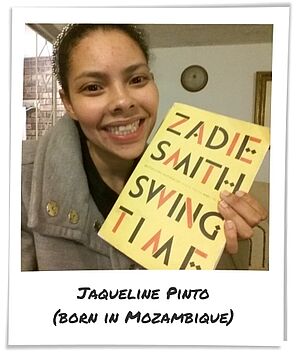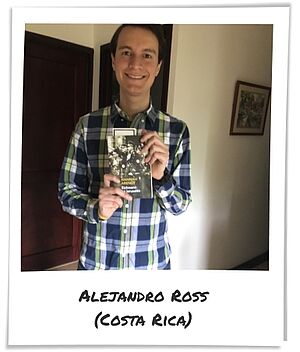Youth share reading picks and we stacked it for you
With summer in full swing across half the globe, summer readings have also arrived.
For this special August issue, we asked participants from over a dozen of training academies and programs supported by Friedrich-Ebert-Stiftung for youth around the world to share a book they have read—fiction or non-fiction, new or old.
From timely and poignant non-fiction oldies to politically charged fiction and memoirs, here are 20 suggestions by young political activists, trade unionists, journalists and many more in the international network of social democracy. Read and discover their encounters with the suggested books, the circumstances that brought them closer and the places they lived together.
April Marie Antenor (Philippines)
Wonder by Raquel J. Palacio
I have to say a big thank you to my friend, Charlie Perez for sharing this book with me when he visited me in Cebu [Philippines] a few years ago. It’s a very easy read and a novel that anyone can relate to: in Auggie's quest to be ordinary, he tries to hide his true self. But in doing so, his extraordinary character and strength shine even brighter. We don't need super powers to change others and ourselves for the better. What we need is to show kindness in everything that we do and everything else will follow.
I usually bring a book when I travel or go trekking and so this was one of those days. We were having a day-long trek up in the mountains, just an hour away from the city. We were having a quick lunch break at the shoulder of a ridge before pushing for our final assault to the summit.
Justine Balane (Philippines)
Sex, Politics and Putin by Valerie Sperling
I found the book in a bookstore in Tirana, Albania. It explains how authoritarian regimes and those who oppose it use sex and sexism to struggle for power. A lot of Putin's macho-politics is happening now in the Philippines, with Duterte. This will help activists like me understand how our struggle to defend democracy will defeat sexism as well.
I was in Albania as I read the book, where I attended the International Union of Socialist Youth festival.
Kanak Barman (Bangladesh)
Mother by Maxim Gorky
Since I first got involved in politics during my high-school days, we used to meet once a week at a reading circle. It was there that I heard about Gorky. I was a mere teenager when I first read the book and was introduced to the world of movements for workers’ rights and social change. The ideas were lodged in my brain since then and still inspire me.
It was 1993 when I was studying for my Higher Secondary Certificate. I used to live in a dorm with other students. Every night I went to bed with the book and fell asleep while reading it. However, there were a couple of instances when I was up all night, wrought with excitement.
Francisco B. Bautista, Jr. (Philippines)
Why Nations Fail: The Origins of Power, Prosperity and Poverty by Daron Acemoglu & James A. Robinson
Concepts like vicious and virtuous cycles fascinated me. The premise basically is that inclusive institutions and strong central government breed innovation and generate creative destruction. These are necessary in furthering the development of inclusive institutions and incentives for people to work under certain conditions. I was in graduate school when I read the book, it was recommended by my sociology professor.
Kaltrina Beqiri (Kosovo)
Between Stabilisation and Democratisation - Elections, Political Parties and Intra-Party Democracy in Kosovo by Adem Beha
I heard about the book through the FES Office in Pristina. My main interest area is the subject of political parties. This book is the first one of its kind, which deals with the intra-party democracy of the political parties in Kosovo and their role on the democratisation process.
I use the book very often for study purpose. During the FES Summer University last month, I strongly recommended the book to my international friends who were interested in the political party system and the political situation in Kosovo.
Carlo Emmanuel Cabatingan (Philippines)
The Moral Arc: How Science Makes Us Better People by Michael Shermer
This book was just suggested to me by a friend who happens to be a marine biologist. He said I should read it to understand the importance of research in this post-truth age.
I read it every morning I travel from home to office, a commute that takes one hour.
Justine Dinglasan (Philippines)
Discipline and Punish by Michel Foucault
I first read a chapter of Discipline and Punish for an English class in college. I’m glad it was a required reading because it genuinely changed the way I understand power in society. I finally got a copy of the actual book six years after, because it was always sold-out!
I was in different places as I read and reread the book: at home, school, the office, the mall etc. Foucault actually likened some of these places to the "Panopticon”. As I went about my day reading his narrative, I realized that I was living it. #bookception
Grace Ann Enriquez (Philippines)
Arms and Hunger by Willy Brandt
I thought that the author's name sounded familiar. I was motivated to read the book because it was honest and straightforward especially in presenting the problems that the generations before me faced and that those problems are still evident and significant nowadays.
At the time, I worked at an institute where I was also enrolled as a graduate student. At the library of the institute where I was supposed to read books on sociological theories I ended up reading Arms and Hunger.
Nelisa Jojo (South Africa)
Rape: A South African Nightmare by Pumla Dineo Gqola
Prof Gqola had tweeted about the book being published and I later heard her unpack key points in the book on KAYA FM with John Perlman. I had been following her work from A Renegade Called Simphiwe and the book also presented a well-researched perspective on rape in South Africa and how our everyday interactions perpetuate rape culture.
I read the book from home and later talked about it with friends: we shared our own experiences and practical ways of dismantling rape culture in our individual spaces.
Abul Md. Kalam (Bangladesh)
Bangladesher Sromik Srenir Proshongay (About the Working Class of Bangladesh) by Shahida Parveen
Since my involvement in workers' rights movement for over seven years, I have learned about similar movements in the South Asian subcontinent through various sources. However, what makes this book very resourceful and inspiring is the manner of compiling and presenting the history of the Bangladesh movement, its successes and failures and the possible way forward as suggested by key trade union leaders of the country. The writer herself is a prominent trade unionist who was the first female union leader in the ready-made garment sector.
I purchased the book as soon as it was published this year. It is a part of my personal library at home and I have already read the book at least five times.
Kimuyu Titus Kaloki (Kenya)
Thinkers of Social Democracy by Christian Krell (Ed.)
I got the book from our Resident Representative in FES Kenya office. I was motivated to read it because it gives very informative and historical accounts of various Social Democracy Thinkers. It is also important for me as a Social Democrat.
I read the book at home in Nairobi, Kenya. I was relaxing during my days off.
Curwyn Mapaling (Republic of South Africa)
The Last Lecture: Lessons in Living by Randy Pausch
My mentor, Dr. Jennifer Winstead, gave it to me as a gift, just as I was about to complete my undergraduate studies at the Nelson Mandela University before I commenced my postgraduate studies at Stellenbosch University, as a Mandela Rhodes Scholar.
I was in the United Kingdom at the time, as an Abe Bailey Travel Bursar.
Mluleki (Republic of South Africa)
We need new names by NoViolet Bulawayo
A friend of mine suggested it. It is a lovely book told by an African of Zimbabwean descent about the lives of Zimbabweans when Zimbabwe plummeted into poverty. It also talks briefly about the Zimbabwe-China relations.
I was working as a researcher at a public interest law centre in South Africa when I was reading the book.
Aphiwe Nkosimbini (Republic of South Africa)
My own Liberator by Dikgang Moseneke
Dikgang Moseneke is the former Deputy Chief Justice of South Africa and seasoned anti-apartheid activist. He conducted a series of book launches around the country and it was through the media that I came to learn of his book.
Khalid Nuristani (Afghanistan)
The Art of War by Sun Tzu
I love reading self-help non-fiction books. When I heard about this book and how a 2500 years old book resonates with the 21st century audience, I just had to read it. The more I read, the more I realized how much I can make use of this book in both my professional career and personal life.
I read the book at home, doing what everyone normally does when home, enjoying the family life. I also took the book with me to office. Every now and then, I revisit the teaching of the Art of War to have an upper hand in difficult situations.
Shahnaz Parven (Bangladesh)
Shatkahon by Samaresh Majumder Sharkoon
I have been reading novels by Samaresh Majumder since I was in grade 7, but I read this book in my early twenties. I immediately felt drawn to the main protagonist of the book, Dipaboli. She is a strong female character who successfully overcomes a multitude of obstacles that the society places in her path and comes out shining and victorious. “Shatkahon” is the story of her life.
I was a student when I first read the book 12 years ago, seeing the book with a classmate and developing an interest in it as I was familiar with the author. I borrowed the book and used to read it at night in bed, tucked safely under the mosquito-net. I could deeply relate to Dipaboli and she still inspires me. I recommend every woman to read this book to draw inspiration and strength from Dipaboli’s undefeatable character.
Alejandro Ross (Costa Rica)
Eichmann in Jerusalem by Hannah Arendt
I was taking a lecture in a class on Theory of State at the University of Costa Rica. We were talking about the influence of political liberalism and learned about Hannah Arendt and the introduction of her concept “banality of evil”. After reading the summary of the book and knowing that it dealt with the trials of an ad hoc tribunal in Israel I had to read it.
It took me several months to read the book. You need to read and investigate all the situations that are explained in the book. Understanding “banality of evil” as a concept is the most important part of reading the book. I read it from November to April, at my house and when at university, whenever I had a moment to read it. I'm sure you'll get submerged in the words of Arendt and end up buying more of her books.
About FES Connect
Connecting people, in the spirit of social democracy, we source and share content in English from the German and international network of the Friedrich-Ebert-Stiftung.
